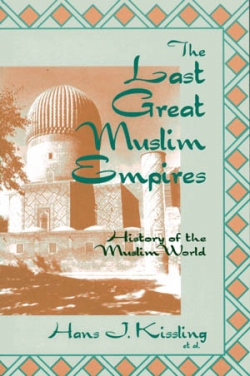 “Islamic history feeds into world history … Islamic civilization became a global phenomenon, for example, in its capacity to receive and absorb culture from one end of the world and then pass it on to other parts of the world. One sees this in the rapid movement, within the Islamic world, of paper-making or irrigation technology, of herbs and agricultural crops, or of scientific knowledge, especially mathematics, astronomy, and medicine. Demographically, too, Islam became a global reality. Although the religion is stereotypically identified as peculiarly and especially Middle Eastern, the worldwide distribution of the world’s one billion Muslims — more than two thirds of whom live outside of the Middle East — tells quite a different story.
“Islamic history feeds into world history … Islamic civilization became a global phenomenon, for example, in its capacity to receive and absorb culture from one end of the world and then pass it on to other parts of the world. One sees this in the rapid movement, within the Islamic world, of paper-making or irrigation technology, of herbs and agricultural crops, or of scientific knowledge, especially mathematics, astronomy, and medicine. Demographically, too, Islam became a global reality. Although the religion is stereotypically identified as peculiarly and especially Middle Eastern, the worldwide distribution of the world’s one billion Muslims — more than two thirds of whom live outside of the Middle East — tells quite a different story.
“The study of Islam has also opened up to students of world history a good many themes and processes suitable for cross-cultural comparisons. One of these is religious conversion. Since no continent has remained uninfluenced by Islam, which is today the world’s fastest growing religion, historians of Islam are in a unique position to compare Islamization with other kinds of culture change. Moreover, conversion to Islam is no longer understood, as it once was, exclusively in terms of the expansion of something, implying imposition, which in turn suggests the old European stereotype of Islamic militancy; but rather in terms of the assimilation of something. In other words, instead of adopting the perspective of one standing in Mecca, always looking out upon an ever-widening, ever-expanding religious tide that is uniform and monolithic, one instead adopts the perspective of receivers who, standing in a remote and dusty village, incorporate into their existing religious system elements considered useful or meaningful that drift in from beyond the ocean, from over the mountains, or simply from the neighboring village …”
— Richard M. Eaton, in his introduction to this volume
